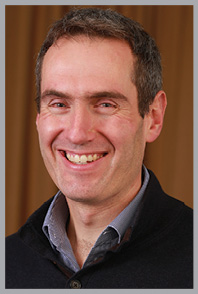Funding mental health

Dr Laurence Dorman, a GP in Kilkeel and Deputy Chair (for Policy) of RCGPNI, discusses the challenges of provision for mental health services in General Practice in light of the fact that many practices are not taking up the allocation of limited resources offered by the Health and Social Care Board (HSCB) to employ in-house counsellors.
It is a busy Tuesday morning surgery and already the waiting room is starting to fill up. The distant cry of a baby with a temperature through my wall emphasises I am behind schedule and need to speed up.
I can’t reply to the child’s demands at the moment because in my surgery, sullen faced and reeking of stale alcohol, is John (*not his real name). John had attended me two weeks earlier and hadn’t looked much better then. Worse, was his reluctance to share any of his story. Today is different though and I detect the smallest chance I can make a connection to allow him to ventilate.
 John still hasn’t got over his father’s death. He died from cancer six months ago and John, who is divorced and 55-years-old, went out of his way to be a supportive son. He still visits his father’s grave daily. To put in the rest of the hours of day light he has started drinking heavily and has resigned from his job. I fear he is entering a dangerous spiral which will not end well.
John still hasn’t got over his father’s death. He died from cancer six months ago and John, who is divorced and 55-years-old, went out of his way to be a supportive son. He still visits his father’s grave daily. To put in the rest of the hours of day light he has started drinking heavily and has resigned from his job. I fear he is entering a dangerous spiral which will not end well.
“So why do you feel you have to visit his grave everyday?” I ask gently, the crying child in the waiting room still in my ears.
“Because I was a bad child and I am still seeking his forgiveness,” is the chilling response.
During the next 10 minutes John opens up some more. He had an unimaginable childhood spent shoplifting and dodging the police. Worse than that; from a young age his home offered no refuge. His now deceased father was an alcoholic and beat him regularly – more so if he was in trouble.
My professional pride at having extracted this invaluable information about John is quickly flattened when I glance at my appointments list and I see how many patients are already waiting for me. I simply cannot give John the time he needs and I don’t have the professional skills to glean the relevant facts or help him change his destructive behaviour.
I am a lucky GP. In our team we have the fantastic resource of an in-house counsellor – and she is on all the doctors Christmas Card list! We could not imagine working without her.
John accepts my offer to set up an initial counselling session. I know our counsellor will phone him this week and he will be seen within two weeks in our practice.
John has difficulty leaving the house other than to visit his father’s grave. To be able to offer him an appointment in our familiar surgery will make the difference of him attending or not.
It is two weeks later when our counsellor comes to talk to me. Our patients like to see her as any issues they discuss together are confidential and do not appear in their medical files. This allows them to talk freely about issues they may find difficult or embarrassing, knowing it will never be accidentally disclosed on a future report. She does however make it clear at the start of any therapy that any disclosure about potential harm to themselves or others must be flagged to a GP.
Our counsellor is worried about John and he has given her permission to talk to me. They have started working through his many complex issues, but she feels he is exhibiting many symptoms of depression with early morning wakening and anhedonia – an inability to take pleasure in normal daily processes. We agree he should start an antidepressant and I issue the script, arranging for him to review with me in a few weeks.
‘Talking therapies’ such as Cognitive Behavioural Therapy (CBT) are provided but the real strength of having access to an in-house counsellor is that she is part of our Primary Care Team and can discuss cases quickly with me when the need arises. This ensures holistic, patient-centred care. In contrast to the GPs in the practice, counsellors have the gift of time. Each appointment slot is one hour long – time with a patient I simply cannot afford. He attends his appointments faithfully.
Like many GP practices our premises are unfit for purpose. They are Trust owned and badly need renovation and expansion of clinical rooms. The addition of practice-based pharmacists has meant that, on occasion, our counselling sessions have to be provided for patients when I am out on home visits. This ‘hot-desking’ may be popular in offices across cities but it is not suitable for vulnerable patients who have had to conquer their fears to come and visit our surgery.
John returns to see me in four weeks. Counselling is tough. He has had to address many painful memories from his childhood, but he has started the process and is starting to see the results. He has halved his drinking and started to buy food for his home. His grandchildren now visit regularly.
This excellent outcome, however is difficult to replicate throughout Northern Ireland. For several reasons, many practices are not taking up the full allocation of limited resources offered by the Health and Social Care Board (HSCB) to employ in-house counsellors. My practice realised after one year of running the service that we were significantly over the budget the HSCB provides. Rather than having to ration services to our patients, my partners and I took the decision to run the scheme at a loss, meaning any shortfall would come out of our own salaries. We felt strongly about this as we could see the benefits it was having for our patients and how it freed up our working day – trusting in our excellent counsellors’ skills and abilities, allowing us to focus on our more complex patients, while still being available to input in our other patient’s care.
It is unsurprising that throughout the country other practices have been reluctant to partake in the scheme. It takes time to recruit staff. Our practice is struggling to find the space to house our practice-based pharmacists and to host medical students. Unfortunately, we simply cannot do everything we would like to do.
In December 2016, the then Health Minister Michelle O’Neill said: “Counselling is one of the ways we can connect with people before they reach crisis.” Our local trust – Southern Health and Social Care Trust (SHSCT) – is offering a new service where GPs who feel patients requiring Tier 1 or 2 mental health services can refer directly for counselling. While this will work well for some, many of my rural patients are much less likely to travel to this and are even less likely to continue to attend subsequent appointments. Having the service in our practice offers so many more advantages.
Another exciting development recently announced by the Department of Health is the funding to rollout multidisciplinary care teams which will be embedded within the GP practice. These teams will see mental health specialists, social workers and physiotherapists working alongside GPs. While this new skills-mix will be very welcome and of huge benefit to our patients, it will take years for this to be implemented into every practice. And again, we hit barriers of physical space and modern infrastructure that will no doubt slow this process down.
In the meantime, there are practical pieces of work that the HSCB might do to help practices offer in-house counselling services which will help patients suffering mental health problems and will help free up valuable GP time. Maybe rather than accepting that practices are not taking up funding, the HSCB should proactively inquire why this is and assess what practical measures they can offer to assist the individual practices to provide this service. Practical assistance might include help with recruitment, considering alternatives for more physical space and contract writing.
The benefits of having mental health services under our roof have been clear to see. The investment committed to introduce mental health services as part of the new multidisciplinary teams is promising but it will take time before we see all patients across Northern Ireland benefiting from this. Until then, more in-house counselling would be a good start to help improve local services and potentially save the lives of people like John.





